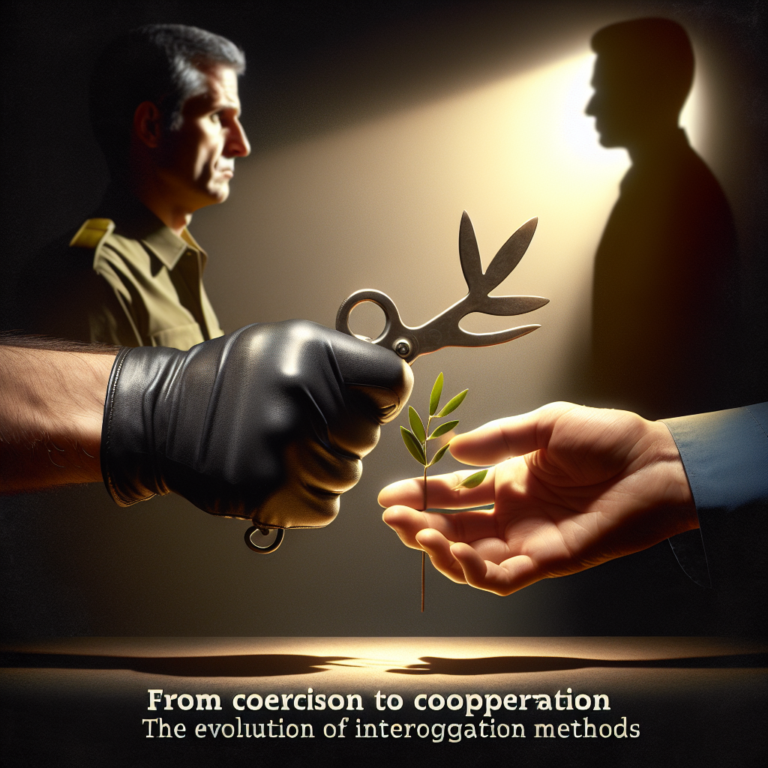
Introduction
In the emotionally charged atmosphere of divorce or separation, children often bear the brunt of parental conflict. This is where the role of child custody evaluators emerges as a crucial pivot point—serving not only as impartial observers but as skilled navigators of complex family dynamics. Understanding The Role of Child Custody Evaluators: Bridging the Gap Between Parents is vital for anyone entering or already embroiled in family law proceedings. These professionals help resolve disputes and support the best interests of the child, offering a pathway to healthier family relationships post-separation.
Understanding Child Custody Evaluation
What is a Child Custody Evaluation?
A child custody evaluation is an in-depth assessment conducted by a mental health professional to determine the best living arrangement for children following parental separation. This evaluation often includes interviews, observations, and psychological assessments. The essential aim is to assess the dynamics between parents and children and offer recommendations to the court.
How Evaluators Approach Their Role
Child custody evaluators employ various techniques and methodologies to gather comprehensive information. They look into factors such as:
- The emotional and psychological well-being of the child.
- Parental capabilities and mental health status.
- The history of parental involvement and engagement.
- Any instances of domestic violence or substance abuse.
Case Study: The Johnson Family
Consider the Johnson family, who came to a child custody evaluator after a bitter divorce. The parents were locked in a continual disputes over visitation rights, leaving their two children, ages six and eight, caught in the crossfire.
After conducting interviews and observations, the evaluator discovered that the father had a deep bond with his children through shared sports activities while the mother provided a stable home and emotional support. The evaluator ultimately recommended a shared custody plan that emphasized the father’s weekend visits, allowing both parents to maintain important connections with their children. This case exemplifies the evaluators’ role in facilitating communication and bridging gaps, ultimately benefiting the children involved.
The Evaluation Process
Initial Interactions
The first step in any evaluation is the initial meeting where the evaluator outlines the process, expectations, and confidentiality principles. During this session, parents often express their fears and desires regarding custody. This transparency sets the stage for a more productive evaluation.
Data Collection
Evaluators gather data through multiple methods:
- Interviews: Engaging both parents separately to understand their perspectives and feelings towards custody arrangements.
- Observations: Observing each parent’s interaction with the child can be invaluable. An evaluator notes not just what is said, but how it is said—body language and emotional responses are critical.
- Collaborating with Other Professionals: Evaluators may also consult teachers or child care providers to get a fuller picture of the child’s environment.
Table 1: Common Assessment Tools Used in Child Custody Evaluations
| Tool | Purpose |
|---|---|
| Psychological Testing | Assess mental health and parenting capacity |
| Observational Assessments | Examine parent-child interactions |
| Interviews | Gather insights from multiple perspectives |
| Home Visits | Evaluate the child’s living environment |
| Collateral Information | Insights from teachers, therapists, etc. |
Conclusion of Findings
After collecting data, the evaluator compiles a report that includes observations, recommendations, and sometimes specific custody arrangements tailored to the child’s best interests. These reports can significantly impact court decisions, making the evaluators’ insights essential for successful outcomes.
The Impact of Child Custody Evaluators
Bridging Communication Gaps
One of the primary roles of child custody evaluators is to serve as mediators. They facilitate conversations between parents, often helping them to see one another’s perspectives. For many families, this newfound understanding can lead to smoother negotiations and settlements.
Emotional Benefits for Children
By ensuring that both parents remain actively involved in their child’s life, evaluators contribute to the emotional stability of children who might otherwise feel torn apart by their parents’ conflicts. The goal is a resolution that minimizes adverse effects on children while fostering a supportive co-parenting environment.
Case Study: The Robinsons
In the Robinson case, the couple’s high-conflict divorce left their children anxious and unsettled. After an evaluation, the custody evaluator recommended a therapeutic intervention aimed at improving communication between the parents. This approach not only alleviated the children’s fears but also provided both parents with tools to communicate more effectively, thereby improving their co-parenting relationship.
Best Practices for Parents During Evaluations
Prepare for the Evaluation
Parents should understand what to expect during the evaluation process. Here are a few actionable steps:
- Be Honest: Transparency helps evaluators make the best recommendations.
- Document Involvement: Keep a record of your parenting activities and involvement with your child to show your commitment.
- Stay Calm: Emotional outbursts can negatively influence perceptions—maintain composure during interactions.
Communicate the Child’s Needs
Focus on the child’s well-being. This perspective aids evaluators in developing fair recommendations. When parents prioritize their child’s needs over personal grievances, it fosters a collaborative spirit.
Conclusion
The Role of Child Custody Evaluators: Bridging the Gap Between Parents cannot be overstated. They help ensure that the best interests of the child are top of mind while navigating potentially tumultuous familial waters. By facilitating communication and understanding, these professionals help to transform discord into cooperation, ultimately benefitting not just the parents but, most importantly, the children.
As families face the emotional turmoil of separation, knowing that trained evaluators are there to support them can provide immense reassurance. It is an essential role, serving as a bridge between parents and their collective aspirations for their children’s future.
FAQs
1. What is the main role of a child custody evaluator?
The main role of a child custody evaluator is to assess the family dynamics and provide recommendations to the court regarding child custody arrangements. They gather insights through interviews, observations, and psychological evaluations to ensure the child’s best interests are considered.
2. How long does a child custody evaluation typically take?
The duration of a child custody evaluation can vary but generally takes several weeks. The timeline depends on the complexity of the case and the availability of the evaluator, parents, and any collateral contacts.
3. Can parents influence the evaluation results?
While parents can present their perspectives, the evaluator’s role is to remain impartial and base recommendations on evidence gathered during the evaluation. It’s essential for parents to engage sincerely and honestly throughout the process.
4. What should I do if I disagree with the evaluator’s recommendations?
If you disagree with the recommendations, you might have the option to request a second evaluation or address your concerns through legal counsel. It’s best to discuss your options with an attorney who specializes in family law.
5. Is the information provided in an evaluation confidential?
The information gathered during a child custody evaluation is generally confidential and can only be disclosed to relevant parties involved in the custody proceedings. However, there are exceptions where the safety of the child or public interest is concerned.
With these insights, readers can enhance their understanding of child custody evaluations, setting them on a more informed path in the often tumultuous journey of family law.












